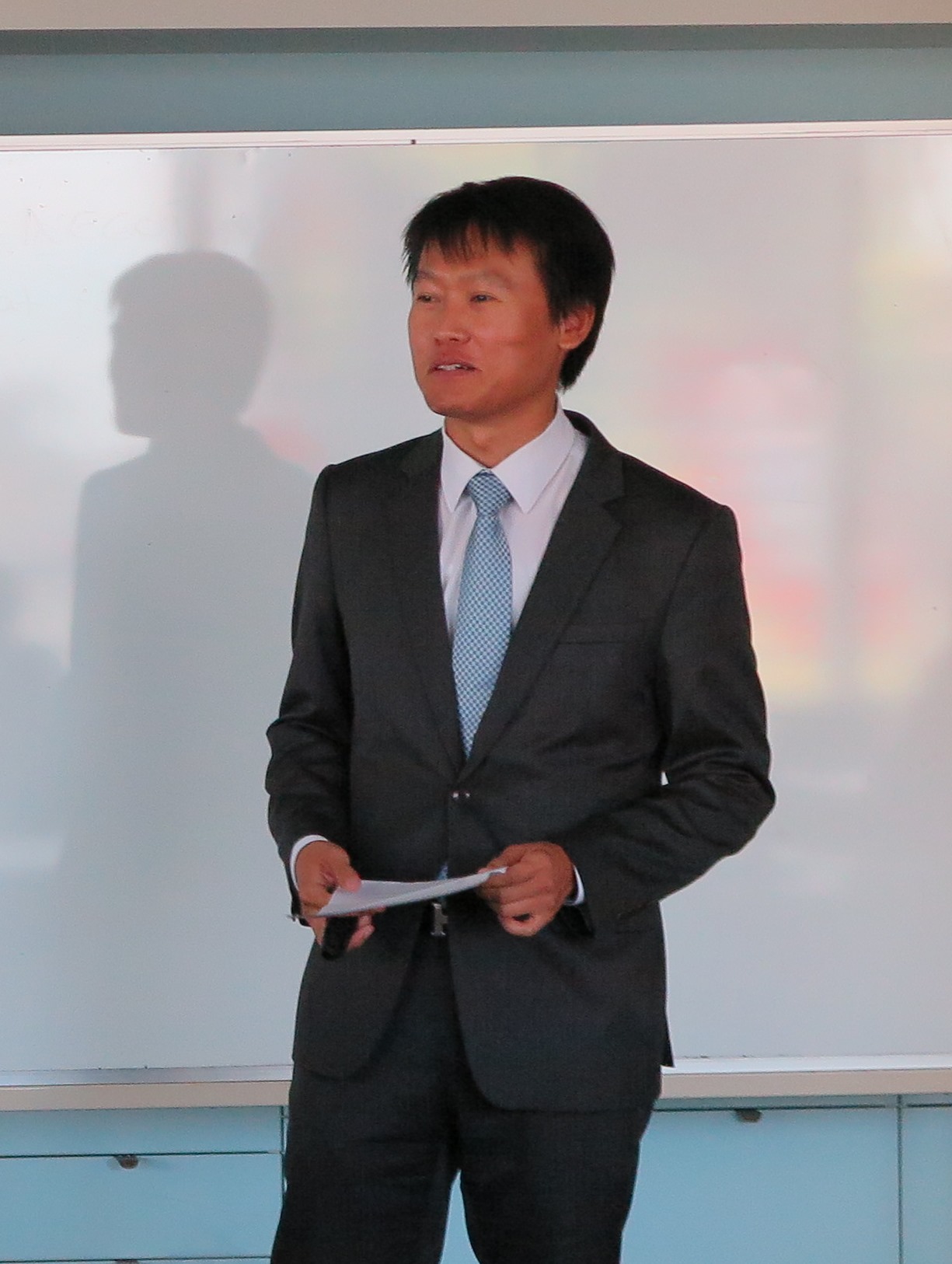Report on 'ALC Brown Bag Seminar - Life of a Judge' (by Sarah Yang, Research Assistant, ALC)
Judge In Deok Seo, Judge of the Daegu District Court in Korea and currently a Visiting Research Scholar at the ALC, spoke about the Korean judicial system and the legal education reforms at a Brown Bag Seminar hosted by the ALC on 2 March 2015. Judge Seo's precis of his presentation appears below:

Korean Judicial System
The Korean court system is made up of three tiers: District, High and Supreme Courts. Certain matters are tried by a single-judge District Court, which can then usually be appealed to the three-judge Appellate Division of the District Court and finally to the Supreme Court (the highest court in South Korea). Other matters are heard initially by a three-judge District Court, which can then be appealed to the High Court and finally to the Supreme Court.
High Courts are situated in the main cities, Seoul, Busan, Daegu, Gwangju and Daejeon. District Courts are widely distributed throughout Korea. In Seoul, there are 5 district courts, reflecting the large population and high number of cases.
Specialised Family, Patent and Administrative Courts also exist. The Patent Court is on the same level of authority as the High Courts, while the Family and Administrative Courts are on the same level of authority as the District Courts.
As of September 2011, there were a total of 2,613 judges in Korea.
A New Legal Education System from 2009
Until 2009, the only mechanism for becoming legally qualified was through the National Judicial Examination (NJE). Under the NJE, 5% of candidates pass and they are then required to complete two years of training at the Judicial Research and Training Institute (JRTI) run by the Korean Supreme Court. Graduates of the JRTI are qualified to become judges, prosecutors and private practitioners.
In 2009, 25 Korean universities were authorised to establish new postgraduate law schools by the Ministry of Education. Under this new system, students must complete three years of law school and then sit the Korean Bar Examination (KBE). In 2012, the pass rate for the first KBE was 87.1%. This decreased to 75.2% in 2013, 67.6% in 2014 and 61.1% in 2015.
Successful candidates will then be admitted to legal practice and no longer required to attend the JRTI. Instead, law school graduates from 2013-2017 will be required to have at least 3 years of legal experience (for example, as an attorney or prosecutor) before becoming eligible to be appointed as a judge. Graduates from 2018-2019 will require at least 5 years of legal experience, graduates from 2020-2021 at least 7 years of legal experience, and graduates from 2020 onwards at least 10 years of legal experience.
These two systems will run in parallel until 2017, when the NJE will be terminated. The number of people passing the NJE will be gradually reduced to 150 in 2015, 100 in 2016 and 50 in 2017.
The reform to the Korean legal system will significantly change the way lawyers, including judges, are educated and employed. As the new wave of lawyers under this system enters the work force, the effect of these reforms will be better understood.